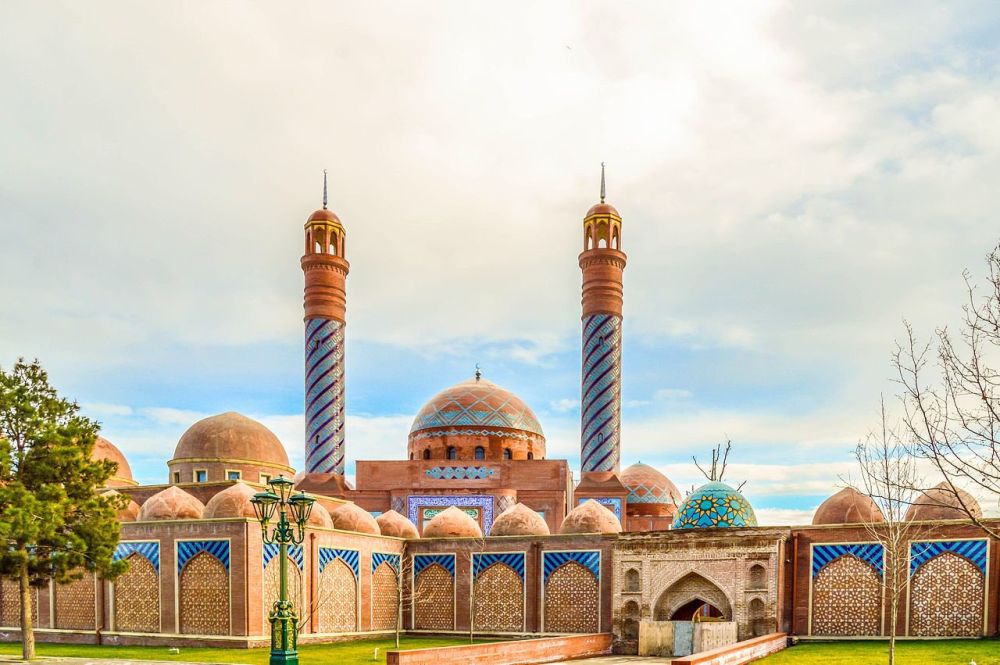

The Juma Mosque located in Nakhchivan, Azerbaijan, is a site of profound historical and cultural significance that has attracted visitors and pilgrims for centuries. The history of tourism at the Juma Mosque is deeply intertwined with the rich tapestry of the region's past, as Nakhchivan itself is one of the oldest cities in the Caucasus region and is steeped in history.
The Juma Mosque's foundations trace back to the 12th century, during the time of the Atabegs of Azerbaijan. It was built on the site of a former Zoroastrian temple, indicating the transition of religious beliefs and practices in the region. Over the centuries, the Juma Mosque became a significant centre for Islamic education and worship, drawing scholars and theologians from across the Islamic world.
During the Soviet era, religious practices were heavily suppressed, and as a result, the Juma Mosque along with other religious institutions faced periods of neglect and limited access for both locals and tourists. However, with the collapse of the Soviet Union and Azerbaijan's subsequent independence in 1991, there was a revival of religious and cultural tourism. The Juma Mosque, being a symbol of Islamic culture and Azeri heritage, regained its place as a key destination for tourists interested in the religious and historical aspects of the region.
Recent years have seen a surge in tourism development in Nakhchivan, with the government investing heavily in infrastructure to improve access and facilities for visitors. Efforts have been made to preserve and restore the Juma Mosque while promoting it as a site of pilgrimage and tourist interest. This includes the restoration of its distinctive architectural features, such as its minaret and prayer hall, making it a prime example of Islamic architecture in the Caucasus.
The latest trends in tourism highlight an increasing interest in authentic cultural experiences and heritage tourism. Visitors to the Juma Mosque are not only interested in its religious significance but also in understanding the history and culture of Nakhchivan. The region's tourism industry is capitalizing on this by offering guided tours, cultural festivals, and interactive exhibits that enhance the tourist experience.
The Juma Mosque in Nakhchivan continues to be a beacon of historical and cultural tourism in Azerbaijan. Through its blend of deep-rooted history and modern-day significance, it offers visitors from around the world a unique glimpse into the region's past and present. As Nakhchivan's tourism sector grows, the Juma Mosque is certain to remain a pivotal part of the experience for travelers seeking knowledge, spirituality, and a connection to the ancient world.